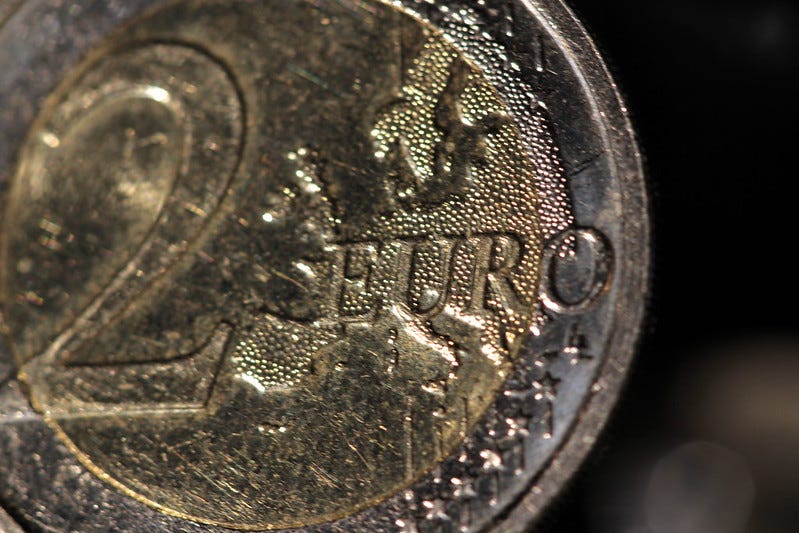Europe notebook: Push for circular economy harks back to 'original greens'
Plus, EU bans use of lead ammunition by hunters

(Stephen Rae is the former Group Chief Editor of INM, Ireland’s largest online and print media group. He serves on the board of the World Association of News Publishers (WAN-IFRA) and was previously on the board of the World Editors Forum. He was appointed by the European Commission to its High Level Expert Group on Online Disinformation.)
DUBLIN (Callaway Climate Insights) — Where there’s muck, there’s brass.
It’s an old saying in Britain and Ireland to signify there is money in dirty, unpleasant work that is not appealing to the majority.
It could sum up Europe’s new drive to a circular economy where incentives are being offered for durable, reusable and repairable products — while at the same time outlawing the likes of single-use products and the destruction of durable goods.
At the European Commission there is a lot of excitement at the prospect of “Recycled in the EU” being a benchmark around the globe for high-quality recycled goods.
I guess in many ways our parents and grandparents — particularly where I come from in the rural southwestern Atlantic coast of Ireland — were the original greens. They lived the circular economy, passing down clothes from child to child, repairing white goods and televisions and knocking a lifetime out of automobiles. The 1970s changed all that and in the interim greenhouse gas emissions have exploded and 90% of biodiversity loss has been linked to the extraction of natural resources to build disposable products.
Now consumers are demanding products and services that do no harm to our natural environment and, as Climate Commissioner Frans Timmermans indicated this week, “we need to protect them against greenwashing.”
In 2021 he will bring forward a flagship initiative, the European Sustainable Product Policy which will have at its heart the EU Ecodesign Directive — effectively demanding products, homes and offices are designed from the outset to be reusable or made from recycled materials.
“Circular economy does not mean limitations and lower levels of comfort, but means smarter products, smarter services, smarter business models, driven or supported by top technological and social innovations,” he told policymakers Tuesday.
Of course, the EU will not be able to do this on its own and is taking the initiative by proposing a Global Circular Economy and Resource Efficiency Alliance. “It will be an Alliance of governments, supported by stakeholders to advocate for the transition at the political level and in multilateral for, of course in the UN in the framework of the SDGs (Sustainable Development Goals),” said Timmermans.
There will also be the long-awaited beginning of discussions on a much-needed international agreement for sustainable management of natural resources. As we have reported in CCI before, the EU wants to become more self-sufficient in rare earths, after the pandemic exposed serious issues in the supply chain from Australasia. But, says Timmermans, Europe also “needs to be able to take care of its own waste and make sure it does not export pollution to other parts of the world.” It would seem both strategies go hand-in-hand.
Of course this is all about business, and hopefully the circular economy will not be a slogan but something that is lived by Europeans and our neighbors. “If we get this right, we can create a healthy economy for decades to come, within the boundaries that the natural world sets,” the commissioner appealed.
It looks like our grandparents were way ahead of the curve. I suppose it took four decades of consumerism, technological revolution, and a climate and biodiversity crisis to prove them right.
. . . . MEPs have voted to ban the use of lead ammunition by hunters. It’s the first step toward a EU ban in lead in the shotgun cartridges used by game hunters.
The big problem of course is that only a small proportion of lead fired by Europe’s poor shots hits its target. Every year up to 27,000 tonnes of the lead ammo lands in water and soil where the poison is mistaken for food by birds. The toxin causes long term harm to adult birds — including kidney damage and impacts on reproduction — killing one million waterbirds per annum. Of course, lead is also used in fishing tackle weights and that, too, is being phased out.
Not everyone is happy. A British association for shooting and conservation said it would fight the ban, calling it “utterly unenforceable.”
Already, however, 23 EU countries have phased out the use of lead shot.
Now there’s something good to tweet about.

